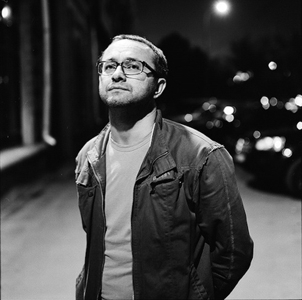Horses and Men
05/23/2011
In Andrey Zvyagintsev’s new film Elena, a middle-aged woman with the name of the film’s title kills her husband Vladimir. Vladimir is rich. He lives with his wife in one of those extensive apartment buildings that look like they’ve been made only to be furnished with the ensembles shown by stylish magazines for interior decoration. Elena, on the other hand comes from a place that appears more like its been cut out of a history book on the Soviet Union. Elena’s unemployed, beer-loving son still lives in a tower block, and has problems feeding his pregnant wife and his two sons. She frequently visits them to help with the money she is able to beg off Vladimir, or, if he refuses, with money she secretly uses from the credit card he gave her.
At the beginning of the film, Elana and Vladimir lead a routined life, Elena’s part in which is to make Vladimir’s life easier. She cleans the apartment, makes breakfast, turns off the television that Vladimir falls asleep in front of, and wakes him up in the morning. At night, she sleeps in a different room. Clearly they don’t seem to share a lot of things and if she doesn’t give the impression that she really loves that man, she could be called a maid with extra services. But this self-sacrificial attitude seems to be part of her character. Elena is someone who lives to make others happy. For Elena, everything in others lives should be harmonious, and she feels that it is up to her make it that way.
But then Vladimir has a heart-attack during his swimming exercises, and things change. The paterfamilias has the feeling that he might die soon. He calls his lawyer to declare his last will and tells his wife about his plans to give most of his heritage to his daughter from a previous marriage with whom he recently reconciled. Elena’s hopes of sending her grandson to university, her dreams of helping them move out of the dismal place they inhabit, vanish. She has to decide between their world and his, whether to save their life at the loss of her husbands.
Clearly the murder is something that Elena is able to choose on her own. If she lived for Vladimir, taking his life would mean a threat to her own. But she kills him, and the reason she kills him is utterly selfish: she doesn’t want to give up the luxurious life she has got to know. So in a way the murder she commits is emancipating for her. It is the first time in the film that she acts by herself, that she serves her own cause. However, it also seems to be the last because there is still her family that moves into Vladimir’s luxurious apartment, and that quickly claims the place as theirs. Elena doesn’t have much to say to the changes they want to make, and quickly falls back into the position of the servant. This puts doubt upon the motivations for killing Vladimir. Did he die for her or for the family? Was Elena acting on her own or was she acting in the name of her family?
In tradition with a very Russian idea of punishment, Elena is haunted by her deed. After the murderer, the outside world transforms into an apocalyptic panorama, reflecting and threatening Elena’s inner state of being. The smooth, almost clinical protection of the apartment is pierced by an image of a dead horse that Elena sees on the way to hand her dead husband’s money over to her son’s family. As she arrives the lights in the entire district are turned off. While this could be just another power breakdown caused by some technical problem, it is obvious that it echos Elena’s feelings, ultimately confusing an outside cause with an inner one.
But despite these ominous incisions, Elena’s emotions remain casual. As prior to the crime, she doesn’t say much, leaving words and actions to the people she lives with. In the end, the real tragedy might be her solitude, her exclusion from the people dear to her. She lives in between two social groups, and is accepted by neither. The daughter of her husband thinks she married for money, and maybe Vladimir thought so too, when he decided to cut short her part of the heritage, almost as if he wanted to put her fidelity to test. Her family despises her for the same reason, thinking that she wants to profit from something they are deprived of. In search for acceptance, she sacrifices her life to both sides. Thus it is perhaps her own selfless being that haunts her, not so much the murder itself. The dead horse does not only parallel Vladimir’s fate but also Elena’s. In fact she is much more like a horse than Vladimir. Is it not Elena who is domesticated, like a horse, for the purpose of serving other people?
Moritz Pfeifer
www.eefb.org
